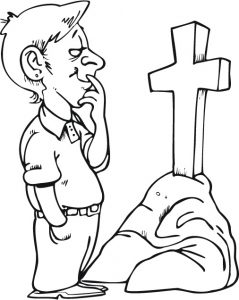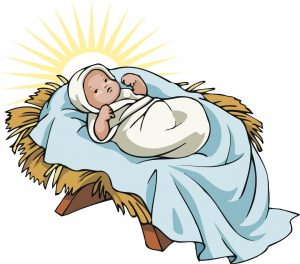For March 13, 2022
Faith is a mystery that is essential to our relationship with God. Abraham was seventy-five when God commanded him to go to an unspecified location, and he obeyed without wavering. Such conviction in the face of tremendous uncertainty was unprecedented. No one before Abraham showed a willingness to obey God with such unrealized faith; depending on an unseen reality for his family’s survival. Thus, God rewarded him with a solemn promise,
And I will bless them that bless thee, and curse him that curseth thee: and in  thee shall all families of the earth be blessed. Genesis 12:3 (AKJV)
thee shall all families of the earth be blessed. Genesis 12:3 (AKJV)
Today, we still honor Abraham for spawning a nation, and a faith movement that’s still vibrant today, because as Romans 4:21 (AKJV) attests (my emphasis),
He staggered not at the promise of God through unbelief; but was strong in faith, giving glory to God; And being fully persuaded that, what he had promised, he was able also to perform. And therefore it was imputed to him for righteousness.
Paul’s commentary of Abraham’s faith encounter with the Lord gives us two important lessons relevant to the Christian life today. The first is the steadfastness of our True and Living God, as it declares that God is immutable, and we can trust His veracity in any situation. God’s Words are true, eternal, and shall never fail, even as Jesus Himself declares,
Heaven and earth will pass away, but my words will never pass away. Matthew 24:35 (NIV)
Hear the testimony of the Psalmist,
Forever, O LORD, Your word is settled in heaven. Psalm 119:89 (NKJV)
Human resolve will only go as far as our finite human strength will take us—no further! But our God is eternal, omniscient, and omnipotent. Only He alone can keep every promise He made in the past, is making today, or will make in the future.
The Lord is wholly without change. This concept is hard to grasp for the modern mind since our lives along with all that we know (or will ever know) is capricious and ever changing.
Yet, our Lord is absolute, and without vacillation. Here is what James writes about the matter,
Whatever is good and perfect is a gift coming down to us from God our Father, who created all the lights in the heavens. He never changes or casts a shifting shadow. James 1:17 (NLT)
Moreover, God is without untruth. Look at what Jeremiah attests,
But the LORD is the true God; he is the living God, the eternal King. When he is angry, the earth trembles; the nations cannot endure his wrath. Jeremiah 10:10 (NIV)
Even the greatest and noblest of us—past, present, or future—cannot make this assertion. Yet, we can still hear the voice of the Almighty resounding from eternity through His word: “Every word of God is pure; He is a shield to those who put their trust in Him!” Proverbs 30:5 (NIV)
The importance of living, vibrant (mustard seed) faith represents the second lesson we can learn from this passage. Abraham was a man of great faith in God; he was “fully persuaded” that God could and would do exactly what He promised to do. In Abraham’s testimony, and other people of faith… including us, we can see clearly that as we continue abiding in the steadfast promises of the Almighty God, we can know safety, and eternal peace and fulfillment.
This kind of faith would have said, if it could speak, “I believe, Lord; although I can’t see where my belief will take me; but I will believe in You, with the conviction that everything will work out perfectly.” Here is what the Psalmist again writes,
Trust in the Lord and do good; dwell in the land and enjoy safe pasture. Commit your way to the Lord; trust in him and he will do this: He will make your righteous reward shine like the dawn, your vindication like the noonday sun. Psalm 37 3,6 (NKJV)
The story does not end with Abraham; it applies to us today. Just as God promised and delivered on His promises to Abraham, being utterly steadfast and true to His word, God will also be absolutely steadfast and true to His promises to us today.
But to receive His blessings, we must be as Abraham. And that is to tenaciously hold to God’s unchanging hand,
Hold To God’s Unchanging Hand1
Jennie B. Wilson (1857-1913)
Time is filled with swift transition. Naught of earth unmoved can stand. Build your hopes on things eternal. Hold to God’s unchanging hand.
Trust in Him who will not leave you. Whatsoever years may bring. If by earthly friends forsaken, Still more closely to Him cling.
Covet not this world’s vain riches, That so rapidly decay. Seek to gain the heav’nly treasures. They will never pass away.
When your journey is completed, If to God you have been true, Fair and bright the home in Glory, Your enraptured soul will view.
Refrain:
Hold to His hand, God’s unchanging hand. Hold to His hand, God’s unchanging hand. Build your hopes on things eternal. Hold to God’s unchanging hand.
Jesus Christ is the beginning and the end of all redeeming faith. Trust in Him and the promises of God become yes and amen! (Hebrews 12:2, 2 Corinthians 1:20)
As we hold to God’s unchanging hand, even when we cannot see the outcome, we must remain encouraged; confident that God’s will is being done. And His will produces positive outcomes for His precious children—always. Won’t you trust in the Lord today? He promised He will never fail or forsake us.
What a Wonderful Savior!


 ways higher than your ways, And My thoughts than your thoughts. For as the rain comes down, and the snow from heaven, And do not return there, But water the earth, And make it bring forth and bud, That it may give seed to the sower And bread to the eater, So shall My word be that goes forth from My mouth; It shall not return to Me void, But it shall accomplish what I please, And it shall prosper in the thing for which I sent it.” Isaiah 55:8-11 (NKJV)
ways higher than your ways, And My thoughts than your thoughts. For as the rain comes down, and the snow from heaven, And do not return there, But water the earth, And make it bring forth and bud, That it may give seed to the sower And bread to the eater, So shall My word be that goes forth from My mouth; It shall not return to Me void, But it shall accomplish what I please, And it shall prosper in the thing for which I sent it.” Isaiah 55:8-11 (NKJV) Now, brothers and sisters, I want to remind you of the gospel I preached to you, which you received and on which you have taken your stand. By this gospel you are saved, if you hold firmly to the word I preached to you. Otherwise, you have believed in vain. For what I received I passed on to you as of first importance: that Christ died for our sins according to the Scriptures, that he was buried, that he was raised on the third day according to the Scriptures. 1 Corinthians 15:1-4 (NIV)
Now, brothers and sisters, I want to remind you of the gospel I preached to you, which you received and on which you have taken your stand. By this gospel you are saved, if you hold firmly to the word I preached to you. Otherwise, you have believed in vain. For what I received I passed on to you as of first importance: that Christ died for our sins according to the Scriptures, that he was buried, that he was raised on the third day according to the Scriptures. 1 Corinthians 15:1-4 (NIV) everyone to his own city. Joseph also went up from Galilee, out of the city of Nazareth, into Judea, to the city of David, which is called Bethlehem, because he was of the house and lineage of David, to be registered with Mary, his betrothed wife, who was with child. So it was, that while they were there, the days were completed for her to be delivered. And she brought forth her firstborn Son, and wrapped Him in swaddling cloths, and laid Him in a manger, because there was no room for them in the inn.
everyone to his own city. Joseph also went up from Galilee, out of the city of Nazareth, into Judea, to the city of David, which is called Bethlehem, because he was of the house and lineage of David, to be registered with Mary, his betrothed wife, who was with child. So it was, that while they were there, the days were completed for her to be delivered. And she brought forth her firstborn Son, and wrapped Him in swaddling cloths, and laid Him in a manger, because there was no room for them in the inn. years old, give or take—a relatively young man—cut down in the prime of His life. His claim to be God in human flesh, (or the Son of God), along with His claim to be our only means of redemption were without validation to this point. Then, something happened that distinguishes Him from anyone who has ever lived.
years old, give or take—a relatively young man—cut down in the prime of His life. His claim to be God in human flesh, (or the Son of God), along with His claim to be our only means of redemption were without validation to this point. Then, something happened that distinguishes Him from anyone who has ever lived.